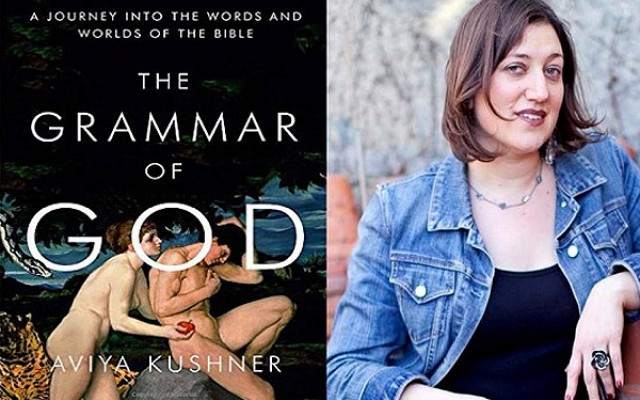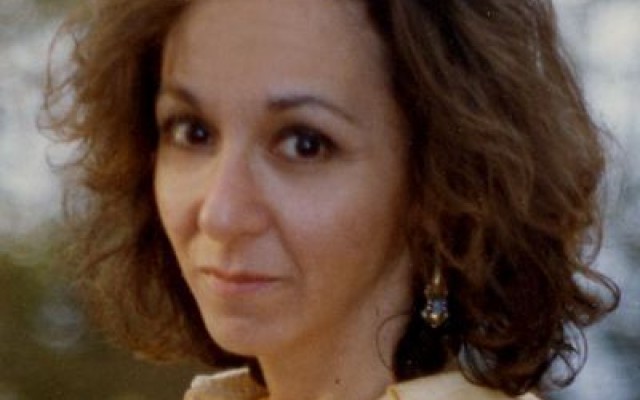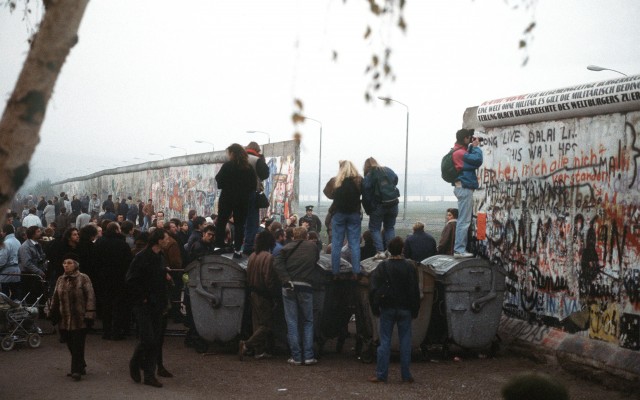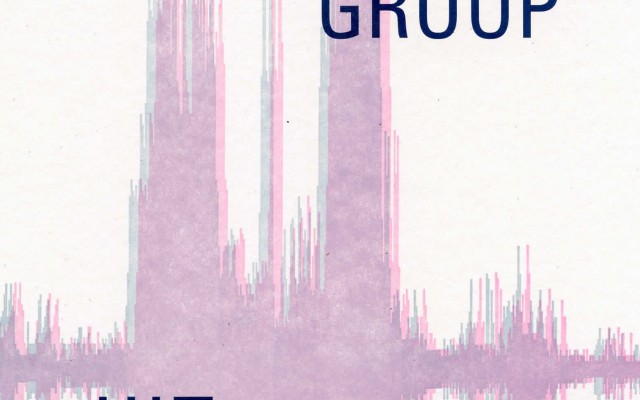World Literature in the Making

Here’s our contribution to the world literature in the making!
As we are approaching the end of the 2019 International Writing Program’s Fall Residency at the University of Iowa, we’d like to give you a glimpse of what’s been happening in the translation world of Iowa City over the past three months.
As many of our readers must know, if not a nebula, only closer to home, the International Writing Program (IWP) is a hub that unites world literatures, building conversations and post-conversations on the topic under the skies of Iowa City. Since 1967, the IWP has hosted over fifteen hundred writers from more than 150 countries in affiliation with University of Iowa. The IWP Fall Residency, which runs from late August to mid-November, anchors down established and emerging contemporary creative writers including poets, fiction writers, dramatists, and non-fiction writers, providing a truly international literary experience to the writers as well as to the literary community in Iowa City.
The International Translation Workshop, co-led by Christopher Merrill and Nataša Ďurovičová, is a workshop space where MFA candidates at the UI Translation Workshop collaborate with writers in producing translations and transcreations of the visiting writers’ works. This Fall (2019), ten translators have been working with thirteen writers– each from a different language– and we are delighted to share some of their poetry with our beloved translation enthusiasts.
Most of the translations are collaborations and co-translations by the poets and translators, working with a language each translator has not worked with before, an exciting experience pushing the limits of the translators to explore boundaries of languages, transcending the general practice woven around translation. The languages include Hebrew, Spanish, Nepali, Turkish, Yoruba, and Lithuanian.
round stuff
by Roy Chicky Arad
co-translated from Hebrew by Roy Chicky Arad and Chamini Kulathunga
I love round stuff
come here, round stuff
jump in the air, round stuff
round stuff is so round, round stuff
and also so curvy, this round stuff
from the Mongols to gals from the Gulf, everyone loves round stuff
even the handicapped in Reykjavik, everyone loves round stuff
the heart of the Indian Ocean is rough, because you love round stuff
long live, round stuff
so fun, round stuff
and sometimes, it’s just tough for the round stuff
so it becomes sad round stuff
even in the Holocaust, there were round stuff
heroes day, more round stuff
religious Zionists often got round stuff
but electricians’ wives haven’t got enough
Ethiopian immigrants and round stuff
and I love how the round is so so in love
because you’re so very round,
people forget you’re so profound
and in the heart of the desert - nine round stuff
or else you won’t call it round stuff
wherever you go, honey, take some round stuff
even in hell, you have stuff that is round
and it cheers up the sinners and party people around
those lahouhs and puff pastries are so round
no, they’re not crooked, just lost and found
don’t you want to be near me
on a rainy ground, on a tiny whiny mound
with stuff so round
matters so round
children so round
inside bushes so round,
my dear stuff so round?
soft and tough
tense as a moist giraffe
I will love you forever, round stuff
and when I die
my spirit
will run off the cuff
and I will be buried in a rectangular grave, because that’s enough
from there, I will look at all the handsome people and laugh
and I will say to myself
“oh, what fun, this lovely round stuff”
דברים עגולים / רועי צ'יקי ארד
כל כך אוהב את הדברים העגולים
בואו לכאן, דברים עגולים
קִפצו באוויר, דברים עגולים
הם כל כך עגולים
וגם עגלגלים
בכל העולם, כפרסבאיות ומונגולים, כולם אוהבים דברים עגולים
בשירותי הנכים בפאתי רייקיאוויק, כולם אוהבים דברים עגולים
בלב האוקיינוס ההודי חמים, כי כולם אוהבים דברים עגולים
יחי יחי הדברים העגולים
כיף פה כל כך לדברים העגולים
ולפעמים סתם נחמד לדברים העגולים
או באסה לדברים העגולים
ובשואה – הדברים העגולים
אבל יותר בגבורה – הדברים העגולים
במגזר הדתי-לאומי – דברים עגולים
יוצאי אתיופיה ודברים עגולים
חשמלאים צ'רקסים – פחות, אבל לעתים
אתם תמיד כל כך כל כך בהחלט עגולים
אחרת לא הייתם מכונים
דברים עגולים
לאן שתפני – הדברים העגולים
וגם בגיהינום – דברים עגולים
ישַמחו את החוטאים והנהנים
וגם הלחוח והבצק העלים – כל כך עגולים
לא עקומים, לעתים עקלקלים
אתם כה עגולים
שלעתים שוכחים שאתם חמודים
ובלב המדבר – תשעה דברים עגולים
רוצה שתהיו לידי –
בימים גשומים, בלילות נשולים
דברים עגולים
עם עניינים עגולים
ילדים עגולים
בתוך שיחים עגולים
רכים וקשיחים,
לחים ומתוחים,
לעד אחבבכם – דברים עגולים
וכשאמות
ונשמתי
תעש פעלולים,
אטמן בקבר מלבני, כי ככה עושים
אביט משם על כל הידידות הידידים
כל החתיכות כל החתיכים
ואומר לעצמי
אויש, איזה כיף, דברים עגולים
***
How to Kill a Horse
by Manuel Becerra
translated from Spanish by Kathleen Archer;
Reduce the strength of the front legs by slicing them with a knife. Make several slices until the animal falls forward, as if kneeling. Then the hooks descend to lift it by its hind legs, exposing its throat for the same slender blade. Place a metal tray to catch the spilling of blood that will immediately follow a well-aimed cut to the throat —a horse can stop its heart when it travels at the speed of sound. As for humans, they cannot stop theirs when they fall out of love at the speed of horses—. Its trachea is marble. One must be decisive to open its neck well and silence the pain.
There is an inebriated god in every horse that sleeps standing up.
Instrucciones para matar un caballo
Se le adelgaza la fuerza de las patas delanteras horadando con la hoja de una cuchilla. Se hacen varios cortes hasta que el animal cae de frente como arrodillándose. Después vienen dos garfios que lo alzan por las patas traseras y su garganta queda expuesta para la misma delgada cuchilla. Se coloca una cubeta de metal para atenuar la caída de la sangre que vendrá inmediatamente después de un corte certero en la garganta—Tiene el caballo la cualidad para detenerse el corazón cuando viaja a la velocidad del sonido. El hombre, por su parte, desconoce esta virtud cuando va hacia el desamor a la velocidad de los caballos—. Su tráque es de mármol. Hay que ser decisivo para abrirle bien el cuello y silenciar el dolor.
Hay un dios ebrio en todo caballo que duerme de pie.
***
A Dead Person
by Buddhisagar
co-translated from Nepali by Buddhisagar, Dinesh Kafle, and Chamini Kulathunga
A dead person,
does he ever look back
into the trembling tears
in his loved ones' blurry eyes
that look like the dew on a fallen leaf?
A dead person,
how many miles does he walk?
And how many lives?
On which cold river
does he cleanse himself
washing off the traces of
shallow streams of tears
now fading on his face?
A dead person, does he ever cry?
A dead person,
what does he carry in his sack?
The secret memories of his life?
His first love letter?
The memory of his first footsteps?
Perhaps some stanzas from his favorite book?
Or is it the first words of his child?
Or
does he just leave everything behind
effacing from his soul
a chest of words and pictures
amassed over a lifetime?
A dead person,
does he stand at the edge of the galaxy
and look back on earth
untying the earthly ties tied to his heart
as if untying ribbons of prayers from a temple bell?
For one last time,
does he look back on earth
reminiscing the people of his earthly life
and fondly smile?
A dead person,
does he ever keep
a return address in his pocket?
मरेको मानिस
--बुद्धिसागर
मरेको मानिसले
पछाडी फर्केर, पातको ओसझैँ आँसुले टिलपिल भएका
आफन्तका आँखाहरु
हेर्छ कि हेर्देन ?
मरेको मानिस
हिंड्छ कति कोस, कति जुनी ?
कुन नदीको किनारमा
नुहाउँछ चिसो पानीले
र, धुन्छ — गालाभरि बसेका
आँसुका धमिला धर्साहरु,
मरेको मानिस रुन्छ कि रुँदैन ?
के — के लैजान्छ
मरेको मानिसले झोलामा ?
जीवनकालभरि सबैबाट जोगाएका स्मृतिहरु ?
पहिलोपल्ट लेखेको प्रेमपत्र ?
पहिलोपल्ट हिँडेको पाइला ?
प्रिय किताबमा केही प्रिय अध्यायहरु ?
पहिलोपल्ट सन्तानले बोलेको आफ्नो नाम ?
कि जान्छ — सबै छाडेर
बिर्सिएर सबथोक,
आत्मबाट मेटाएर
जीवनले कोरेका चित्र र अक्षरहरु !
मरेको मानिसले
आकासगंगाको डिलमा उभिएर
मुटुबाट सम्बन्धका ध्वजाहरु
फुकाउँछ कि फुकाउँदै ?
अन्तिमपल्ट
धर्तितिर फर्किएर,
एकजुनी जीवनमा आँफूसित गाँसिएका
सबै—सबैलाई सम्झिएर
मुस्कुराउँछ कि मुस्कुराउँदैन ?
मरेको मानिसको
गोजीमा
फर्किएर आउँने ठेगाना हुन्छ कि हुँदैन ?
***
The Behavior of Words
by Efe Duyan
co-translated from Turkish by Efe Duyan and Chamini Kulathunga
every word coming out of my mouth
morphs from one shape to another
like hedgehogs
making love in the air
sometimes
falling on to the ground
turning into ice
mingling with clouds
becoming meaningless
sometimes
not allowing
to be pet
like kittens
feeding on leaves of clove
left on the protest grounds
sometimes
letting themselves be blown in the wind
with pollen
they trust
too easily like pigeons
oftentimes
every time I look at you
they compete with my looks
always changing shapes
the words
are only
interested in themselves
they don't care about us
they are little birds
sitting atop a cow
oblivious to the world
unaware
that they change the world
they tie us
with the quietude
of a river
unaware
how it ties
mountains to the sea
SÖZCÜKLERİN DAVRANIŞLARI
ağzımdan çıkan her sözcük
şekilden şekle giriyor
iki kirpi gibi
çiftleşiyorlar havada
bazen
buza dönüşüp
yere düşüyorlar
bulutlara karışıp
anlamsızlaşıyorlar
bazen
bir yavru kedi gibi
sevdirmiyorlar bile kendilerini
mitinglerde bırakılan karanfil
yapraklarından besleniyorlar
bazen
polenlerle beraber
kendilerini rüzgâra bırakıyorlar
bir güvercin kadar
kolay güveniyorlar
bazen değil
ne zaman baksam sana
bakışlarımla yarışıyorlar
şekilden şekle girseler de
yalnızca
birbirleriyle ilgileniyor
sözcükler
umurlarında değiliz
bir ineğin üzerine konmuş
küçük kuşlar onlar
dünyayı tanımıyorlar bile
dünyayı değiştirdiklerini
bilmiyorlar
bizi bağlıyorlar
aslında dağları
denize bağladığını
bilmeyen bir nehrin
sükunetiyle
***
A Past Life
by Soukaina Habiballah
translated from Arabic by Kaylee Lockett
I have teeth
I stand on two feet
and in my eyes an ancient fog settles.
Still I resemble you, you infant.
I cry out and no one understands why.
Whenever I feel bored,
I introduce danger into my life.
My only amusement is
watching things fall from my hand
time and again,
and in my mouth there is one name
with which I blindly call all things.
حياةٌ سابقةٌ:
لديّ أسنان
أقفُ على قَدَمَينْ
وفي عيَنيّ تكدَّس ضبابٌ قديم.
لكني مع ذلك ما زلتُ أُشبهُكَ، أيّها الرضيع.
أبكي بحرقةٍ دون أن يفهمَ أحدٌ لماذا.
أعرِّضُ حياتي للخطر
كلّما شعرتُ بالمَلَل.
تسميتي الوحيدةُ هيَ
رؤيةُ الأشياء تسقطُ من يدي
مرّة بعد أخرى،
وفي فمي ثمّةَ اسمٌ واحد
أُنادي به على كلّ الأشياء.
***
Songbird
by Tade Ipadeola
translated from Yoruba by Tade Ipadeola, edited by Maggie Zebracka
The world became a field
of birds taking flight
a cloud of starlings and ravens
as restless as swarms of hungry locusts…
I heard the songbird calling
for the summer birds, the winter birds,
to gather into a chorus of harmonies
with as many verses as there are stories.
The songbird sang: share my branch
on this towering mountain.
Follow me past bloody fortunes
and share your songs with us.
The songbird sang,
her bright voice an echo
of her rich, flourescent feathers.
I heard the chorus rise,
the chorus meant for birds
of every sort of feather:
‘The wondrous world
is an egg on words.
A wondrous egg
sitting on a nest of words.’
Words…mules of meaning. Atlas,
the world on your shoulders, I’ll
keep you in my pocket, not hanging
from my neck. When my number’s called,
I’ll be busy working the loom,
plucking at its strands.
Words. Wild as runoff, spill
out in the summer heat in rap songs
but tonight, at this Baghdadi nightclub,
only a few will listen to your
warnings. Words. Roll on through
stadiums as soccer fans
shout your anthems. Never
stand alone. Dance across
the moon. Words. Tender, tend
the flowering fields of Kigali and Darfur.
Free caged birds in Seoul and Pyongyang.
The songbird sang through sandstorm and rain
about the egg.
The starlings and ravens sang
about the nest.
Their voices like a stream
that runs over cool stones:
‘The wondrous world
is an egg on words.
A wondrous egg
sitting on a nest of words.’
ODIDERE
Tade Ipadeola
Ile ayé d’ile ogun, paka-leke furọ̀ dain,
Omo eye o ríbi fori le, ipa pin,
Opeere oun àkàlà won bà l’okun
Ara o r’okun, ara o r’omo eye
Bi omo esu...
Mo wa gbo t'odidere eye orin korin
O n wi pe ki gbogbo eye ko wa roko
Kí won gbohun s’oke ko dorin odidi
Kí kowa ko pa tire nile odu
Odidere n korin: e wa ba mi ba
Lori oke ipejo imoran yi
E je ki r’àwo ipeere ko yàto
Ka wa gbo ra wa ye ka ye ṣe ra wa
Eyi lorin imoràn odidere nile orin
Olohun iyo, ijoye pataki laàrin awon pàtàki
Tiye-tiye, tohun-tohun lo at won yo
Mo wa gbo torin iṣokan goke wa
Orin ti gbogbo eniyan yan laayo,
Gbogbo eye n wi pe:
‘Kalankini eyin layé
Kalankini, kalankini,
Kalankini, eyin layé
O gunwa lori ite oro’
Oro….e sin owe, Akoni
To gbe gbogbo ile ayé lejika, je
Ki n jo lapo, maje n ni o lorun,
Tayé ba ni ki n wa wijo
Je kayé ba mi nile orin, ki won ba mi
Ninu iyewu aṣa ati imo.
Oro, Agbara, seleru owe, ojo
Aaro tii bolowo ninu, nirole oni
Ni Baghdadi, bi won ba n fori-luri
Ologbon oun imo ni yoo pelu re. oro
Ninu ojo oun yinyin, ni gbogbo papa
Isere ifesewonse, ti won ba ti n
gbohun soke ki won korin, akin,
orin o nii darin, alubata ko ni darin,
Oro itan labe osupa ni gbogbo ibi
Tojumo ba ti n mo. Oro, jeje ni
Kigali ati Darfur, se lo n gbin ododo
silu ti ko sododo, iwo lo tu igbekun
Sile ni Seouli ati Pyongyangi.
Odidere korin lati latojo de nu eerun
Nipa eyin kalankin ile ayé
Awon iṣomogbe gbohun soke
Nipa oro taa fi te ile ayé naa
Ohun won n san bi odo,
lori okuta inu omi o n korin
Kalankini eyin layé
Kalankini, Kalankini
Kalankini eyin layé
O gunwa lori ite oro.
***
Thief
by Tautvyda Marcinkevičiūtė
co-translated from Lithuanian by Tautvyda Marcinkevičiūtė and Caroline Froh
So hungry so hungry was I in my dream
that I went to the poets I admired and quietly
snuck a line of sauce the seasoning of a metaphor from their hors
d'oeuvres
as you like it in my dream I felt like I was being stabbed by a thousand needles
knowing that at any moment calderon could jab me for plagiarism
from
la vida es sueño that shakespeare could kick me out from under
his thatched roof
an unexplainable hunger forced me to steal fiction after fiction
so I couldn’t understand why my stomach revolted resisted this
promise of impossible fullness after the sauce of enjambment
why it felt so real
this being forced to steal and steal
with outstretched Vogel’s talons
gradually opening the hatch containing the vicious circle of the universe
emerging with strange
filmy Flügel
Rabló
by Tautvyda Marcinkevičiūtė
co-translated into Hungarian from Lithuanian by Tautvyda Marcinkevičiūtė and Kinga Nagy
Olyan éhes voltam de olyan éhes álmomban
hogy szeretett költőim hors-d’ouvre-jéből merítettem
titokban egy ízes sort egy metafora mártásból vagy
ahogy tetszik álmodtam hogy tűkön ülök
hisz calderon bármelyik pillanatban leszúrhat a plágiumért amit
a la vida est sueñoból vettem shakespeare
ki is rúgott volna ezért a szín szalma kulisszái mögül
nem értettem honnan ez a felfoghatatlan éhség
hogy olyan valóságosan háborog a gyomrom
és fikciót fikcióra rabolni kényszerít
az elérhetetlen jóllakottság ígérete az enjambement íz után
rabolni csak rabolni
kieresztett Vogel karmokkal
fokozatosan kibontakozik egy ördögi kör univerzuma
és megszületik az egyedülálló
hártyásszárnyú Geflügel
Vagis
by Tautvyda Marcinkevičiūtė
Toks alkanas buvau toks alkanas sapne
kad nuo man patinkančių poetų hors-d‘ œuvre paslapčia
nugraibydavau po eilutę padažo metaforos uždaro arba
kaip jums patinka sapnavau kaip ant adatų
nes bet kurią akimirką calderon‘as galėjo įdurti ieškiniu
už la vida est suena pasisavinimą šekspyras išvis
išspirti iš šiaudais pakreikto guolio arklidėje
nesupratau iš nepaaiškinamo alkio
ko taip maištauja tikrovės perkimštas skrandis
versdamas vogti fikciją po fikcijos
neįmanomo sotumo pažadą po enjambement‘o padažo
vogti ir vogti
savo išskėstais Vogel pirštais
palaipsniui atidarančiais visatos apytakos liuką
ir virstančiais keistais
plėviasparniais Geflügel
***
POETS
Roy Chicky ARAD רועי צ'יקי ארד (poetry, fiction, nonfiction, performance; Israel) is an activist, musician/performer and writer, with eight published volumes of poetry and prose. He edits the poetry magazine Ma'ayan, translates, largely poetry, and writes for the daily Ha’aretz. The Culture Guerilla group, which he co-founded, takes poetry into Israeli streets.
Manuel BECERRA (poetry; Mexico) is the author of five books of poetry, including Instrucciones para matar un caballo [Instructions for Killing a Horse] (2013). A winner of six national poetry awards, he has had fellowships from the Foundation for Mexican Letters, the Mexico City Institute of Culture, and Art Omi in upstate New York.
BUDDHISAGAR बुद्धिसागर (fiction, poetry, drama; Nepal) authored the bestselling novel कर्नाली ब्लुज [Karnali Blues], which won the 2010 Rastriya Pratibha Puraskar award; an English translation is forthcoming. He has three other novels and one poetry collection; his radio scripts appear on Nepali broadcasts as well as on BBC; a feature film based on his screenplay will be released in 2020.
Efe DUYAN (poetry, translation; architecture; Turkey) teaches architectural history and theory at Mimar Sinan Arts University. He has authored three poetry collections, most recently Sıkça sorulan sorular [Frequently Asked Questions] (2016), and publishes academic work on space in architecture and poetry. His debut novel [Other] is forthcoming. A co-director of the Gaziantep Poetry Festival, he has read at poetry festivals world wide; his work has been translated into 29 languages.
Soukaina HABIBALLAH (poetry, fiction, screenwriting; Morocco) has four poetry collections and one novel [The Barracks] (2016), with a second novel forthcoming in 2019. Habiballah has received many awards including, in 2015, the Buland Al Haidari Prize for Arabic poetry, and the 2019 Nadine Shames Prize for Arab Screenwriters for her short film [Who Left the Door Open?]. Her poetry has been translated into seven languages (including English).
Tade IPADEOLA (poetry, translation, prose; Nigeria) received the 2013 Nigeria Prize for Literature for his poetry collection The Sahara Testaments, which has been translated into four languages; in 2009 he won the Delphic Laurel for his poem “Songbird.” A Bellagio Rockefeller Fellow and a juror for the Nigeria Prize for Literature, he also translates poetry into Yoruba.
Tautvyda MARCINKEVIČIŪTĖ (poetry, translation; Lithuania) has published 15 books of poetry, and three books of children’s poetry. Among her many national awards is the Poezijos Pavasaris National Poet Laureateship. A prolific translator from the English, she has had her own work translated into more than ten languages; the bilingual Lithuanian-English volume Terribly in Love appeared in 2018.
TRANSLATORS
Caroline Froh holds a BA in English and German literature from Grinnell College. She is currently an MFA candidate in Literary Translation at the University of Iowa, where she is translating works by Jenish-Swiss writer Mariella Mehr. A 2019 ALTA Travel Fellow, she is also the recipient of a Stanley Award, which allowed her to research and translate Mehr’s work in the national library in Bern, Switzerland this past summer.
Chamini Kulathunga is a second year MFA candidate in Literary Translation at University of Iowa's Translation Workshop. She has a BA in English (Hons) from the University of Colombo. She's from Sri Lanka, and she works with Sri Lankan Sinhalese literature. Her main focus is translating Sri Lankan contemporary literature. Before coming to the United States, she worked as a visiting lecturer of English at University of Colombo, Sri Lanka, and Sir John Kothalawala Defense University, Sri Lanka. She was a visiting fellow at Cornell University's South Asia Program in the Summer, 2019.
Dinesh Kafle is a PhD candidate in English Studies at Jawaharlal Nehru University, New Delhi. His research focuses on the representation of home, belonging, and alienation in contemporary South Asian fiction. His reviews and writings have been published in Indian Literature, Himalaya, andWasafiri among others. He has translated Benyamin’s novel Goat Days into Nepali (FinePrint, Kathmandu) and Nayan Raj Pandey’s Nepali novella Ulaar into English (forthcoming: FinePrint, Kathmandu).
Kathleen Archer is pursuing an MFA in literary translation at the University of Iowa. She translates from French and Spanish.
Kaylee Locket is from Oklahoma. She received her BA in Middle Eastern Studies from Bard College, and has also studied Arabic at Al-Quds Bard and the American University of Beirut. She’s currently an MFA candidate in Literary Translation at the University of Iowa, and her poems have appeared in places such as Taos Journal of Poetry and Art and Acta Victoriana.
Kinga Nagy is from a small town near Budapest, Hungary. After attending a music secondary school, she studied Mathematics and Literature, along with Literary Translation, at Eötvös Loránd University (ELTE) in Budapest. She holds an MSc in Mathematics and an MA in Literature, and is currently a part-time PhD student in Literature at ELTE and a part-time Mathematics teacher at SEK Budapest. Some of her poems, short stories, translations and book reviews have appeared in Hungarian literary magazines like Élet és Irodalom, Műút, Apokrif, Irodalomismeret, Litera and a translation anthology called Pofon. She is a Fulbright VSR grantee for the 2019 fall semester, conducting research on Ágnes Gergely, a former Hungarian IWP participant.
Maggie Zebracka was born in southeastern Poland and raised in Chicago. She received her BA from Wellesley College and her MFA in Fiction from Vanderbilt University. A 2018 ALTA Travel Fellow, she is currently translating Joanna Bator’s 2014 novel Dark, Almost Night (Ciemno, Prawie Noc) and her 2017 novel Purezento from the Polish. Her translations appear in The Arkansas International, Asymptote, Hayden’s Ferry Review, and Drunken Boat. You can find her work at maggiezebracka.com.
Image Courtesy: Pixabay.com



